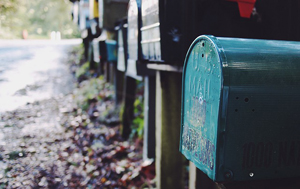NEW YORK, NY - According to a nationwide coalition of State Attorney General's Offices, small businesses across the country are being targeted by a unique and dangerous scam; one designed specifically to separate them from their heard-earned money, and they’re using their local Yellow Pages to do it.

The scam comes in the form of solicitations sent out to the businesses in question that, at first glance, appear to be invoices from the local Yellow Page Directory. Typically, these invoices are mailed out by companies located outside of the state in which the victim is located, and while these companies at times actually do publish directories, they will usually only contain listings for a very limited number of businesses. However, sometimes these companies don’t even publish a directory at all.
These invoices can be very deceiving, as often they will be very official-looking, utilizing the well-known “walking fingers” logo and the term “Yellow Pages,” both of which are actually trademarks that exist in the public domain, according to court rulings. In addition, the invoice will include the phone number of the business, and other information, such as the name of an account representative and a request to update their listing if any aspect of it is outdated. These are all techniques to trick the victim into believing that an existing relationship exists; such professional-looking documents can certainly be confusing, and it’s that confusion that scammers rely on in order to rip off honest, hard-working businesses.
From there, it’s simply a matter of requesting payment from the victim for a directory listing that may or may not even exist. And if by some miracle the directory being offered by the scammer is actually published, it will be in such limited quantities and distribution that it will be all but useless…which the whole idea of the scam is.
To add to the deception, the paperwork the victim receives may contain contradictory terminology; it may simply be a solicitation – which, but United States Postal Department guidelines, must contain the phrase “THIS IS NOT A BILL.” This that is the case, you are under no obligation to pay or respond. However, if you do choose to respond to the inquiries contained in the document you receive, you may suddenly find yourself unknowingly agreeing to some relationship defined in fine print and entered into an obligation to the scammer, which can end up costing you money. It’s always best to shred and simply throw any such paperwork immediately.
However, the scammers could be especially brazen and pass the scam off as a legitimate invoice; either way, contacting the authorities and reporting such activity is a good idea, not only to protect yourself, but to also help others from falling prey to the scam in the future.
Of course, there’s always the chance that you could receive a real request from your legitimate local Yellow Pages, but since it always pays to be cautious, be sure to do your homework first. Go online and conduct research on the company, and if they have a contact phone number – many scammers won’t – call them and ask questions about distribution, number of directories in circulation, and so on. Also visit them at the Better Business Bureau website and see if they have any complaints lodged against them. You can also call the Attorney General’s Office of your state and do the same.
If you do your research and discover something is indeed amiss, don’t hesitate to report the scammer to the authorities, either through the Attorney General’s Office or the Better Business Bureau.
Being a small business owner in this day and age can be difficult enough, but when you add fraudulent scammers desperate to raid your wallet for your hard-earned cash into the mix, it can be downright maddening. But always remember to regard any suspicious piece of mail or email with a healthy degree of skepticism and, if you feel anything is at all amiss, do your due diligence in order to protect yourself. And if there’s any question that an unsolicited offer might be a scam in disguise, make sure you don’t fall for it, and then report it to the authorities to deal with. That way, you’ll not only keep yourself safe, but you’ll prevent the next business from falling for these unscrupulous individuals as well.



